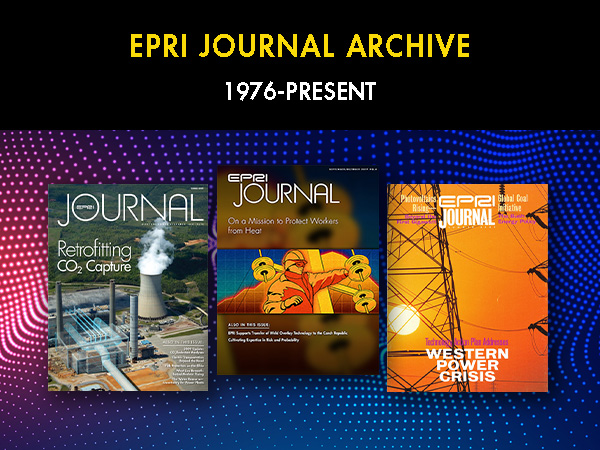Clean energy entrepreneurs often must overcome the so-called “Valley of Death,” where public funding for early-stage technology development runs dry before private funding emerges for production and commercial release.
To support technology scouting and accelerate adoption, EPRI is leading the Incubatenergy Network in partnership with the U.S. Department of Energy (DOE) and the National Renewable Energy Laboratory (NREL). The Network is connecting clean energy entrepreneurs worldwide with stakeholders including incubators, accelerators, investors, and electric utilities in search of novel technologies for the future grid.
“Through our technology scouting efforts, we are very much focused on new technology offerings and helping young companies through introductions to utilities and others,” said Elizabeth Hartman, EPRI project manager for the Incubatenergy Network.
Launched in 2015, the network includes 15 incubator groups, such as Austin Technology Incubator, Oregon BEST, and the LA Cleantech Incubator. These groups collectively support nearly 500 startups that have raised more than $1.6 billion, generate more than $440 million in revenue, and employ more than 3,300 people.
The startups have access to hundreds of technology experts and business development mentors across the incubators, DOE, NREL, and EPRI’s utility members.
Connecting Utilities and Startups
For participants in an energy incubator, networking and demonstration of technical prowess emerge as key functions, facilitated by frequent competitions, conferences, and other events that can connect clean energy innovators with strategic partners. Massachusetts-based incubator Greentown Labs holds monthly “EnergyBar” networking events and an annual DemoDay for prototype demonstrations. NREL’s Lab Impact Summit in Golden, Colorado invites participants to pitch market applications for their products. EPRI hosts an annual summer meeting for members of the Incubatenergy Network, enabling potential connections with utilities and building awareness about the public benefits of innovative technologies.
Such opportunities lead to many collaborative research studies, pilot projects, and field demonstrations with EPRI and utilities. Since the start of the Incubatenergy Network, at least a dozen companies have collaborated with EPRI and utilities on research and pilots, with dozens of additional ongoing conversations.
For example, utilities are interested in technologies to integrate solar, batteries, and other distributed energy resources (DER) into the grid. One network company, ConnectDER, has developed an attachment for a residential electric meter that can reduce wiring and DER installation costs and provide utilities with DER management capabilities. It is being tested in pilot programs with Con Edison, Austin Energy, Hawaiian Electric, and Potomac Electric Power Company.
“We pitched at an Incubatenergy event in Los Angeles, and the benefit was threefold,” explained Whit Fulton, ConnectDER’s founder and chief executive. “We were introduced to new utility contacts, we deepened relationships with existing utility accounts, and we networked with the entire Incubatenergy community of companies, utilities, and investors.”
Also attracting utilities’ interest is AutoGrid Systems, which in 2016 garnered a $20 million investment led by Energy Impact Partners, a venture capital firm founded by several utilities. The investment will advance the commercialization of AutoGrid’s software that enables real-time utility management of extensive deployment of DER.
“Utilities are engaged as development and demonstration partners and increasingly as investors,” said Hartman, adding, “The incubator network has become a critical component of EPRI’s technology scouting effort.”
While EPRI, DOE, and NREL initially funded the Incubatenergy Network as a three-year initiative ending in 2017, it may continue into the future, pending additional funding.
“The connections we have forged between the utility industry, the regional incubator groups, and hundreds of clean energy companies form a strong foundation for future collaboration,” Hartman said.
EPRI Technical Expert:
Elizabeth Hartman


